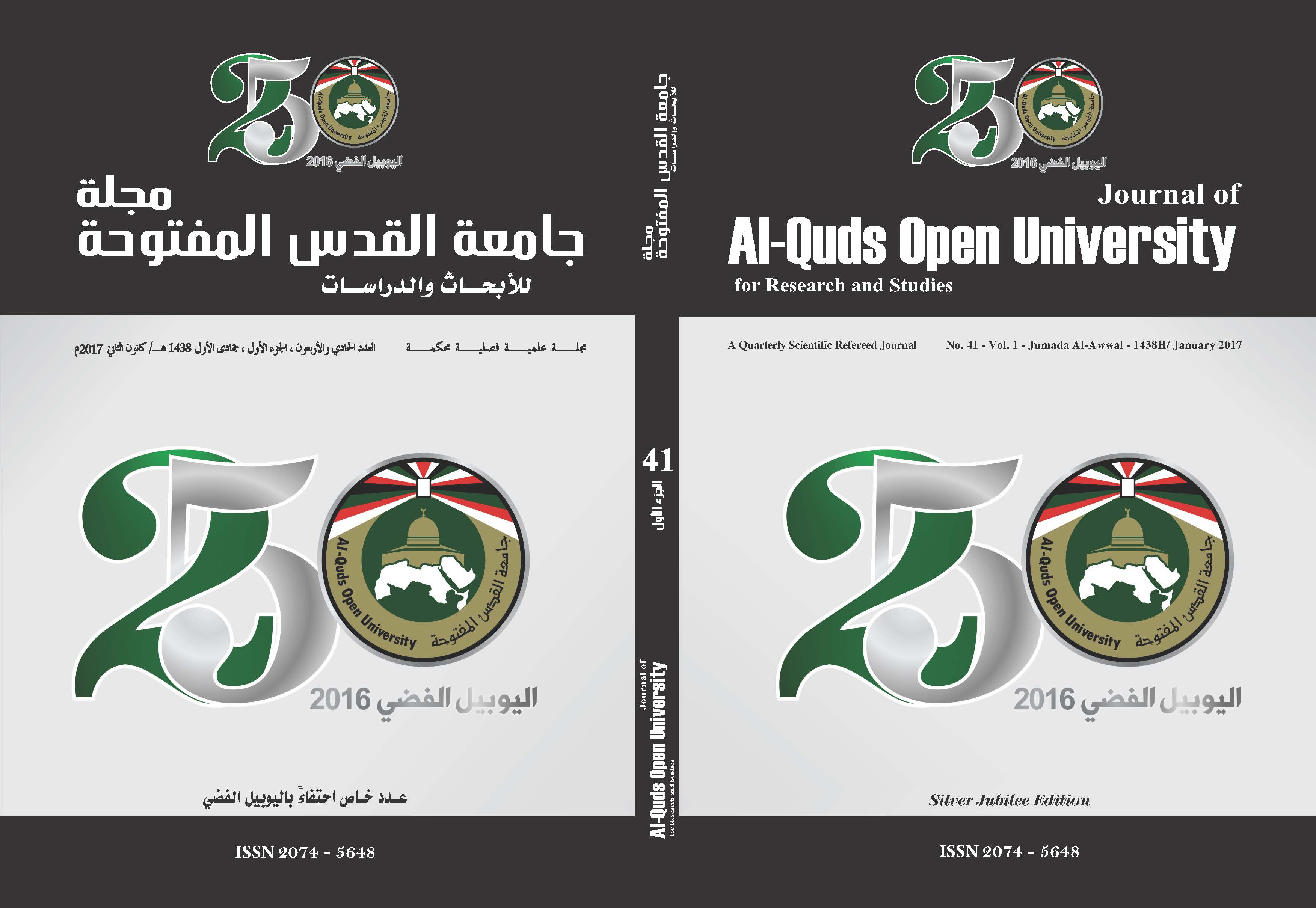Urtas Springs Ordinance Circumstance, Causes of Its Issuance and the Appeal Case
Keywords:
Artas Springs Ordinance, Causes, Appeal Case, Palestine, the British High CommissionerAbstract
This study addresses case number 98/ 1925 which was enacted by the Ordinance issued by the British High Commissioner in Palestine. This Ordinance consisted of the appropriation of the spring waters of Urtas village and the transportation of its water to Jerusalem. Focus has been undertaken to understand the reasons behind taking such a decision of appropriation as well as on the reasons behind the decision of the Royal Court of Justice in London to reject the Order as a reason to the village inhabitants who protested and appealed at the Royal Council. This case has been a challenge to the Palestinian inhabitants of Urtas village on one side and the British High Commissioner (Herbert Samuel) and the Zionist Settlement project in Palestine on the other side. The British Mandate justified the issuing of the confiscation Ordinance of Urtas water because of the drought periods that occurred in Palestine between 1925 and 1936. This decision was issued with the support of the Jerusalem Municipality of which the majority of its members were British and Jewish officers. Due to the expansion of the city of Jerusalem and the construction of new neighborhoods for immigrants, the situation called for a massive supply of sufficient water quantity to meet the needs of the Jewish immigrants. Accordingly, the Urtas spring Ordinance was issued to overtake the spring’s waters, possess it and transport it to Jerusalem despite its contradiction with the British Mandate Act Terms in Palestine and the rights of the region’s inhabitants. This study tackled the reasons beyond the rejection of the Artas spring Ordinance that contradicted the British Mandate Act Terms, as well as the role of the Mandate itself in managing the region’s interests without interfering with the interests of the inhabitants and respecting their civil rights. The Mandate has the right to manage the region to fulfill its public interests and the interest of its inhabitants and has no right to impose its sovereignty on the region and confiscate its natural resources. This study has reached the fact that water has been transported to meet the needs of the Jewish immigrants inhabiting Jerusalem, furthermore, the Ordinance was issued in their favor and not in the favor of the Arab inhabitants due to the circumstances which led to the issuance of the Order.
Downloads
Published
How to Cite
Issue
Section
License
- The editorial board confirms its commitment to the intellectual property rights
- Researchers also have to commit to the intellectual property rights.
- The research copyrights and publication are owned by the Journal once the researcher is notified about the approval of the paper. The scientific materials published or approved for publishing in the Journal should not be republished unless a written acknowledgment is obtained by the Deanship of Scientific Research.
- Research papers should not be published or republished unless a written acknowledgement is obtained from the Deanship of Scientific Research.
- The researcher has the right to accredit the research to himself, and to place his name on all the copies, editions and volumes published.
- The author has the right to request the accreditation of the published papers to himself.













_2.png)
_.png)
_2.png)
_1.png)
_.png)

